

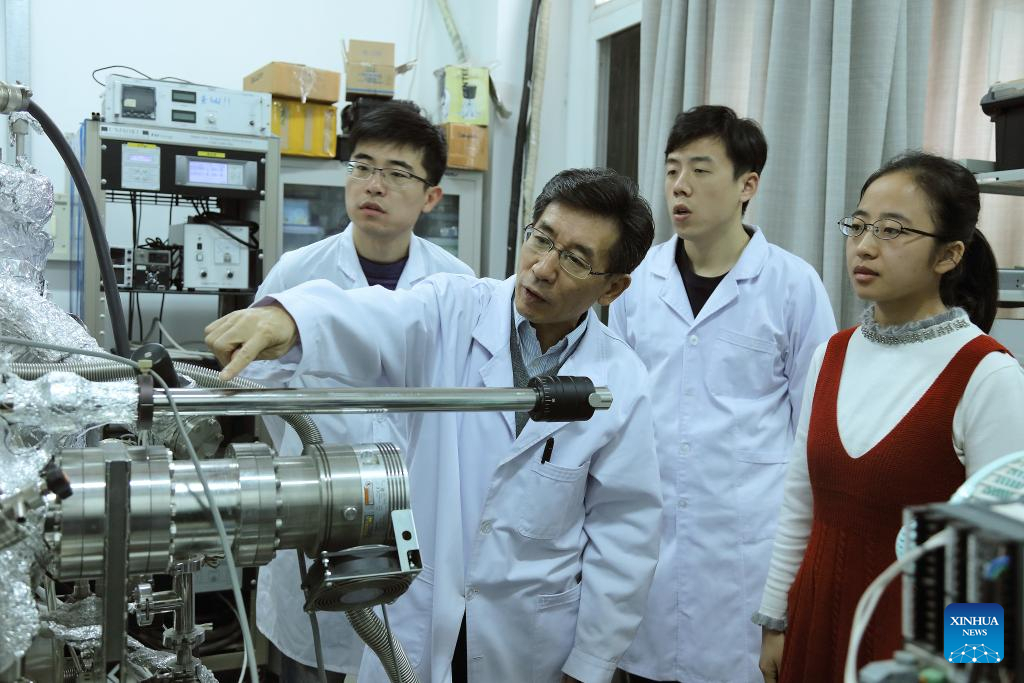
Xue Qikun (front L) discusses with students at a laboratory in Tsinghua University in Beijing, capital of China, Oct. 17, 2017. Xue Qikun won China's top sci-tech award for the year 2023 Monday. Xue is a distinguished scientist of condensed matter physics, who has achieved multiple scientific breakthroughs. His team made the first experimental observation of the quantum anomalous Hall effect. They also discovered interface-enhanced high-temperature superconductivity in the heterostructure system, which opened up a new direction of research in the field of high-temperature superconductivity. (Photo by Shi Jiadong/Xinhua)
BEIJING, June 24 (Xinhua) -- Chinese physicist Xue Qikun, winner of the country's top sci-tech award for the year 2023 unveiled on Monday, has dedicated his entire career to fundamental research in materials physics.
Born in 1963, Xue grew up in a mountainous area in east China's Shandong Province. After studying and working in Japan and the United States for eight years, he returned to China in 1999.
While working at Tsinghua University in Beijing, Xue started to focus on the quantum anomalous Hall effect, which would contribute to the development of low-power consumption electronics if verified. However, at that point, no one had yet observed it in a laboratory setting.
Xue and his team were uncertain about the outcomes when they started the experiments. He likened it to racing on an unmarked course without any clear guidance.
His team worked tirelessly over four years. They prepared and measured over 1,000 samples, and overcame a series of scientific challenges. "Whoever makes a breakthrough first will gain an advantage in subsequent research and applications," Xue said.
One night in October 2012, Xue received a text message from his team that they had successfully observed the trace of the quantum anomalous Hall effect in the lab.
They published their findings in the journal Science in 2013. Nobel laureate Yang Chen-ning called it "the first physics paper of Nobel Prize level published by a Chinese lab." The observation achievement won him the 2024 Oliver E. Buckley Condensed Matter Physics Prize.
"When major scientific opportunities emerge, we must seize them to strive for pioneering original achievements, thereby propelling the continuous advancement of our country's sci-tech level," Xue said.
He also seized another significant scientific opportunity in the field of high-temperature superconductivity.
After years of dedicated research, in 2012, Xue and his team made the groundbreaking discovery of interface-enhanced high-temperature superconductivity.
It reached the highest transition temperature under normal pressure since the discovery of cuprate high-temperature superconductors in 1986. This breakthrough opened up a new direction of research in the field of high-temperature superconductivity, and prompted extensive follow-up research both domestically and abroad.
"We have caught up with the golden age of scientific research. Now that the country has provided us with such excellent research conditions, we should cherish them and strive to achieve more 'zero-to-one' breakthroughs," Xue said.
Xue spends most of his time in his office or the laboratory. To learn as many advanced experimental techniques as possible, he would arrive at the laboratory almost every day at 7 a.m. and leave at 11 p.m. This routine has continued ever since he returned to China.
His unwavering perseverance profoundly influences the younger generation. He often encourages young researchers that achieving success in scientific research relies on one percent talent and 99 percent hard work.
When encountering bottlenecks in experiments, he enthusiastically cheers on his team and works together with them to find solutions. He also points out valuable research directions for them and encourages them to explore bravely.
Today, Xue continues to be at the forefront of scientific research, leading his team in tackling cutting-edge scientific challenges such as the mechanism of high-temperature superconductivity, the application of high-temperature quantum anomalous Hall effect and the topological quantum states, and the realization of topological quantum computing.
Looking ahead, Xue is brimming with confidence. "China will undoubtedly make significant contributions to the next wave of the global sci-tech revolution," he said.
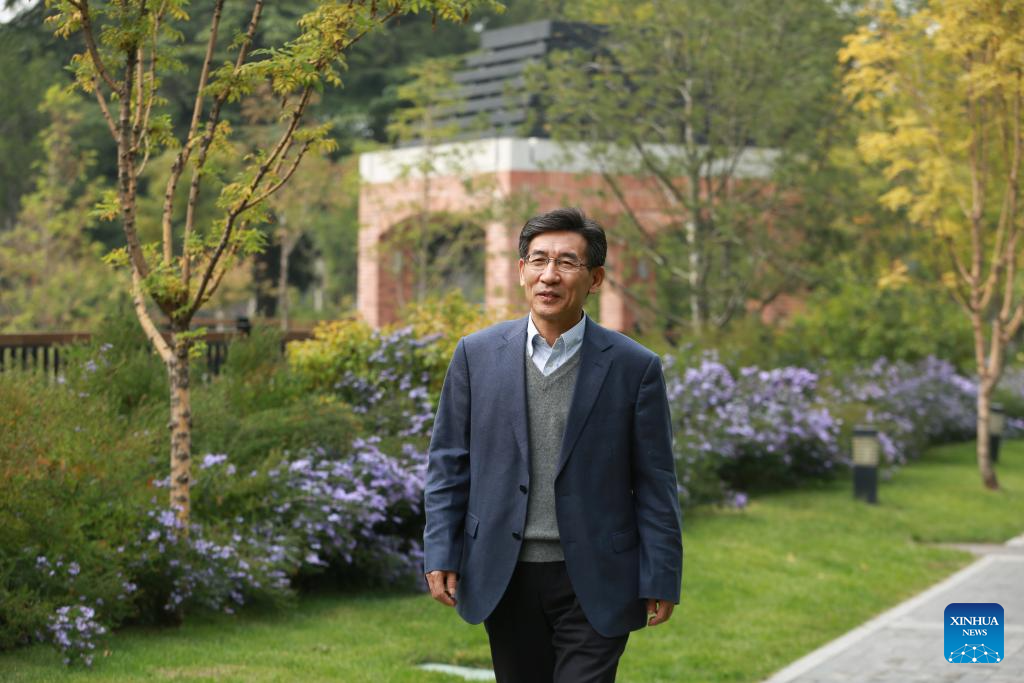
Xue Qikun walks in Tsinghua University in Beijing, capital of China, Oct. 17, 2017. (Photo by Yuan Jie/Xinhua)
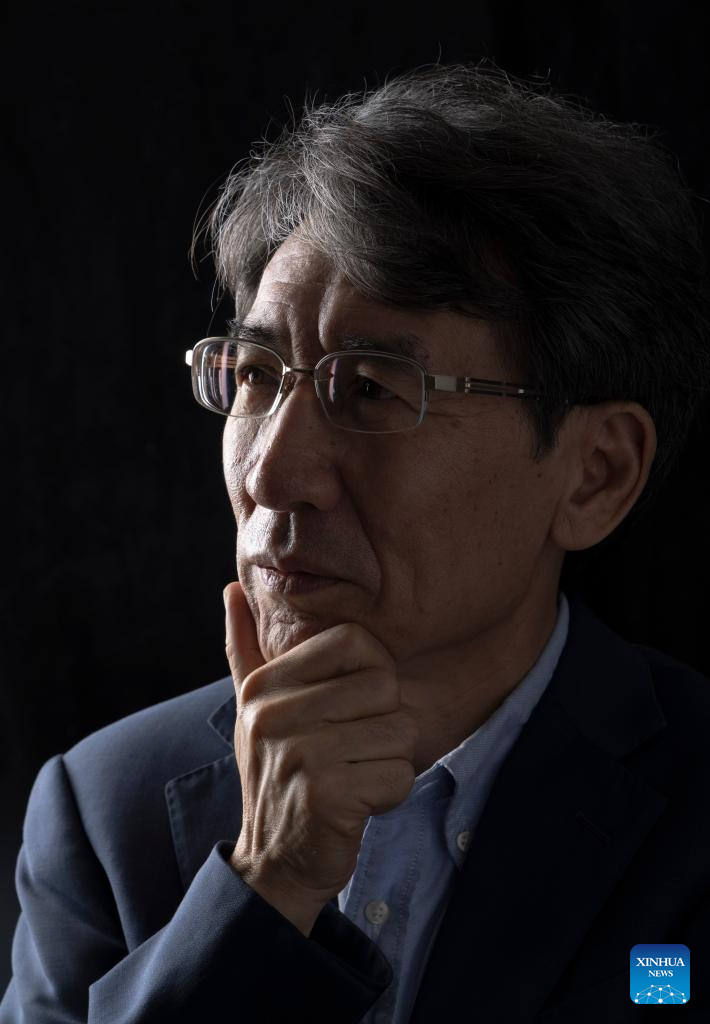
This photo taken on June 17, 2024 shows a portrait of Xue Qikun in Beijing, capital of China. (Xinhua/Jin Liwang)
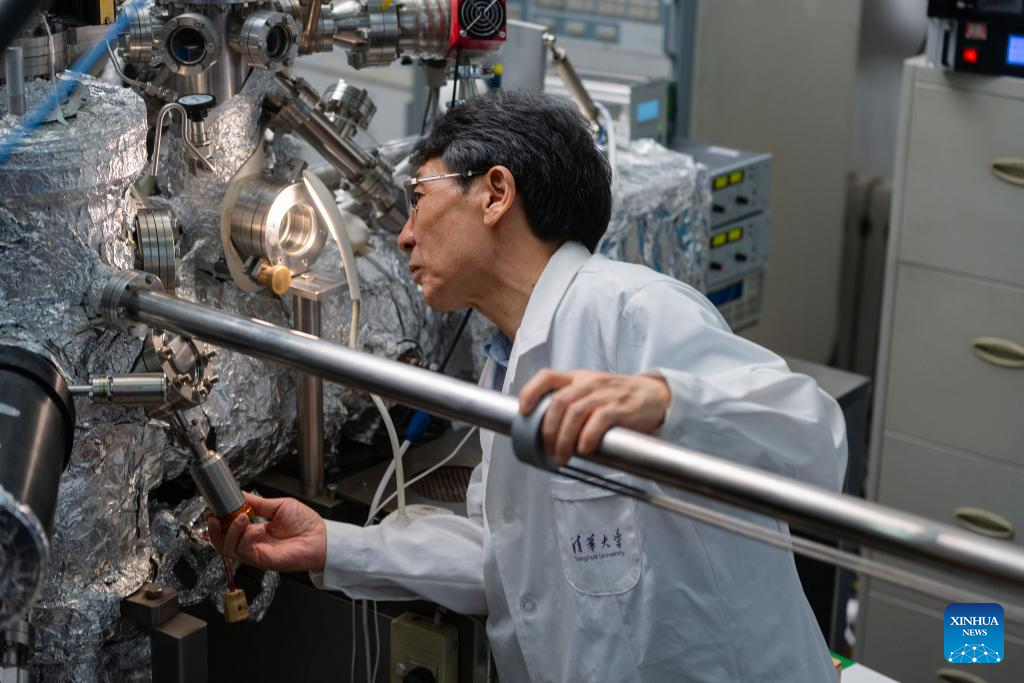
Xue Qikun operates experimental device at a laboratory in Tsinghua University in Beijing, capital of China, June 13, 2024. (Photo by Li Zhou/Xinhua)
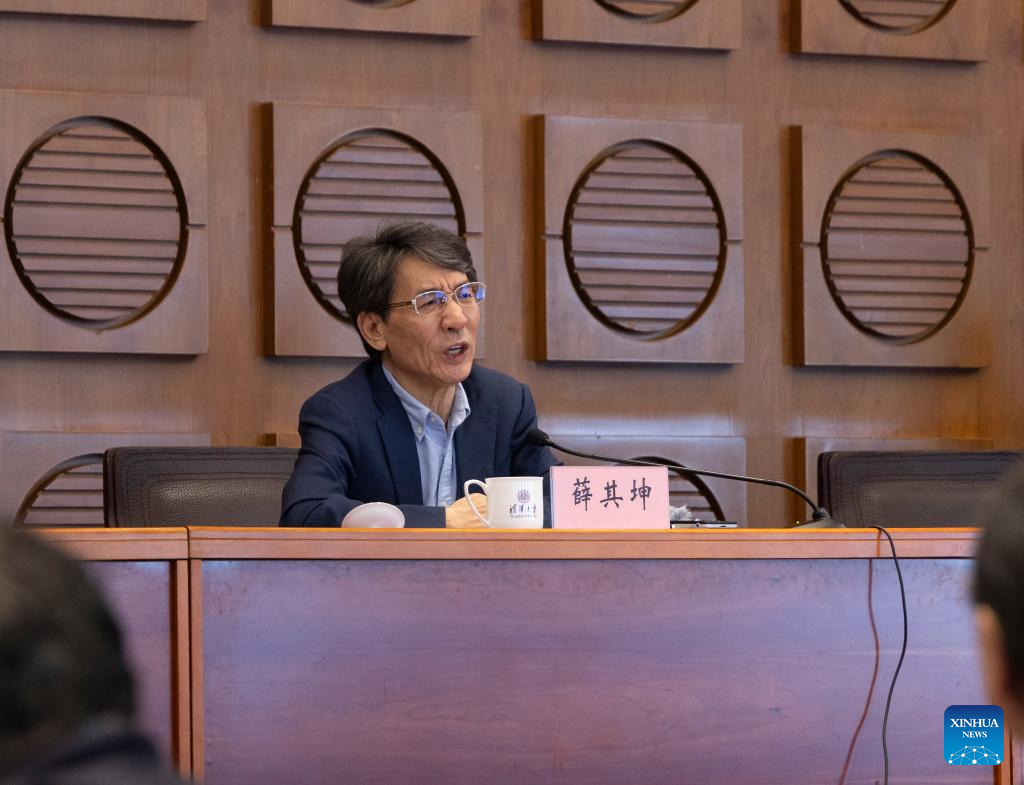
Xue Qikun speaks during a collective interview at Tsinghua University in Beijing, capital of China, June 17, 2024. (Xinhua/Jin Liwang)
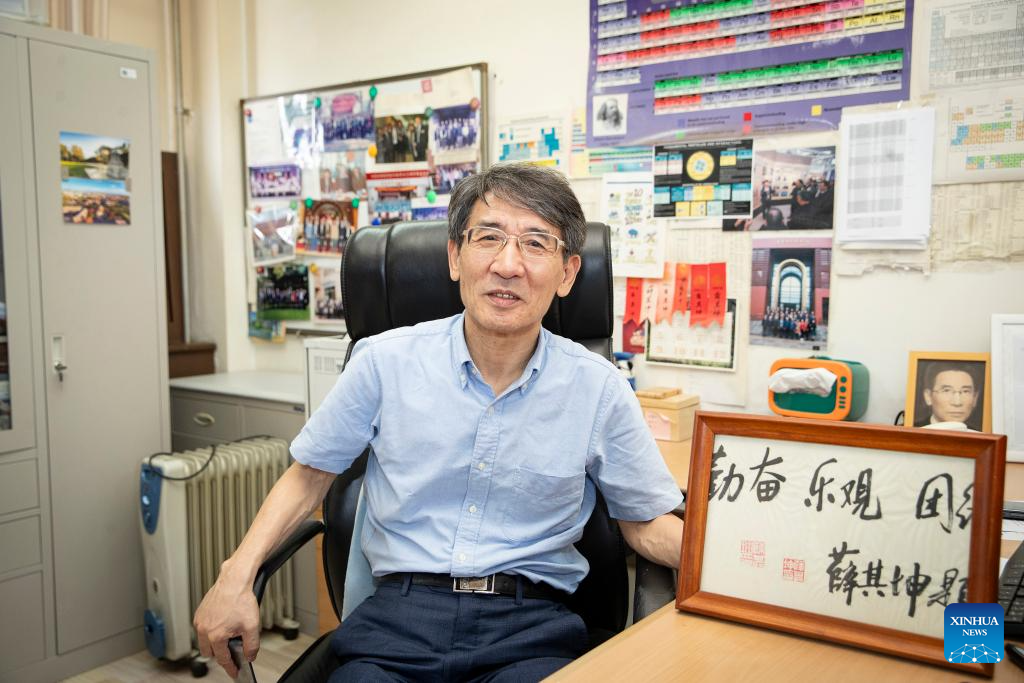
Xue Qikun sits inside his office at Tsinghua University in Beijing, capital of China, June 13, 2024. (Photo by Li Pai/Xinhua)

Xue Qikun stands on stairs at Tsinghua University in Beijing, capital of China, June 17, 2024. (Xinhua/Jin Liwang)
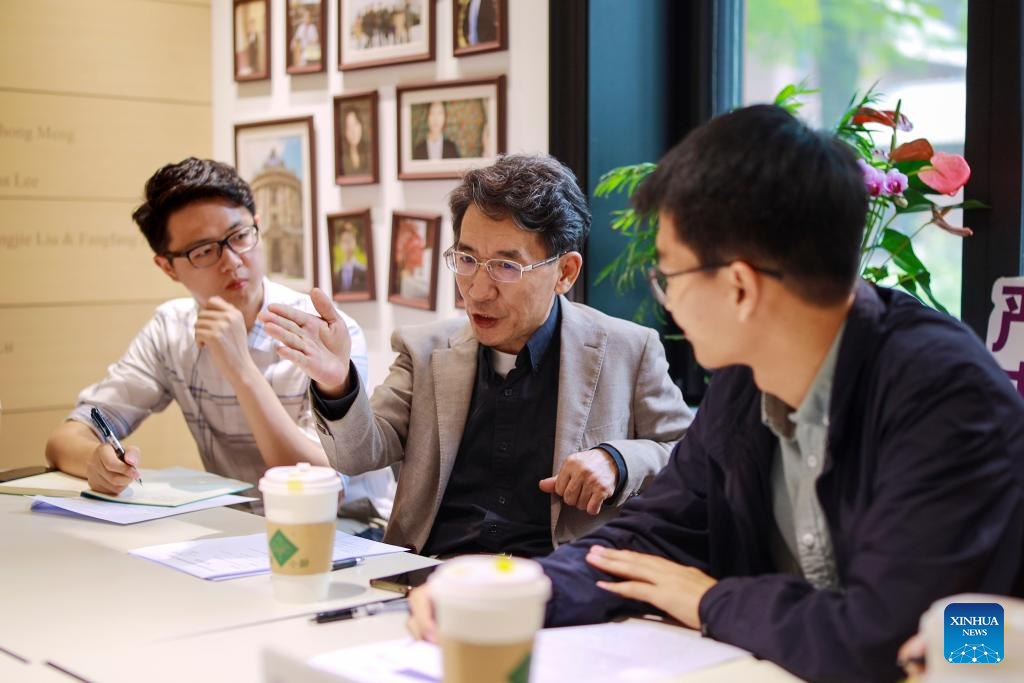
Xue Qikun (C) communicates with students while attending a salon in Tsinghua University in Beijing, capital of China, Sept. 28, 2020. (Photo by Jiang Zhiyu/Xinhua)
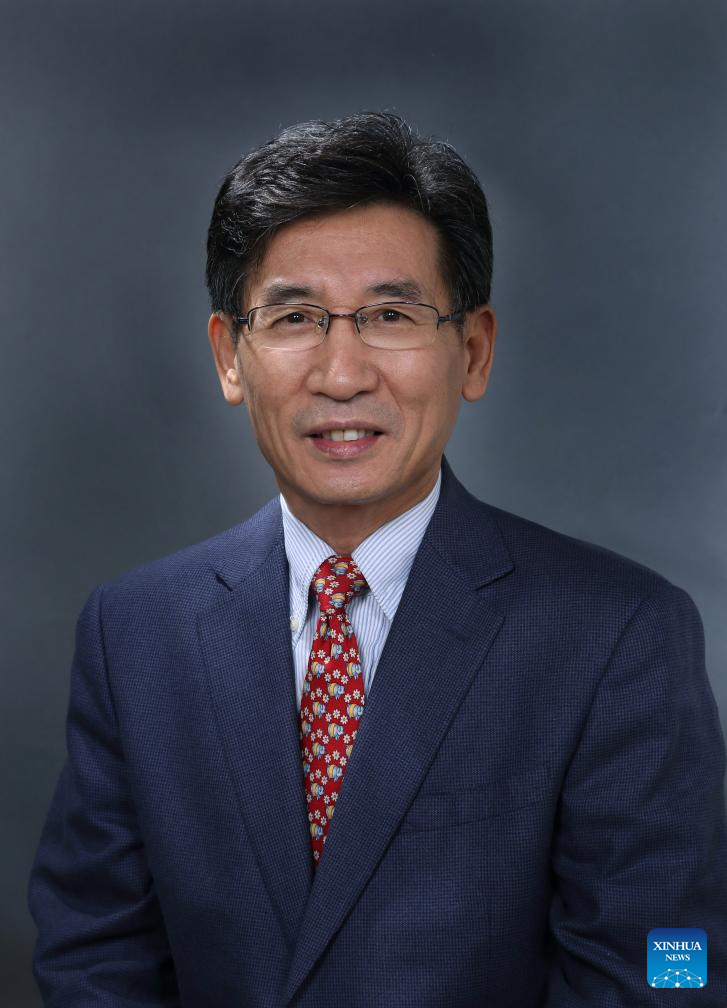
This is a file photo of Xue Qikun. (Xinhua)
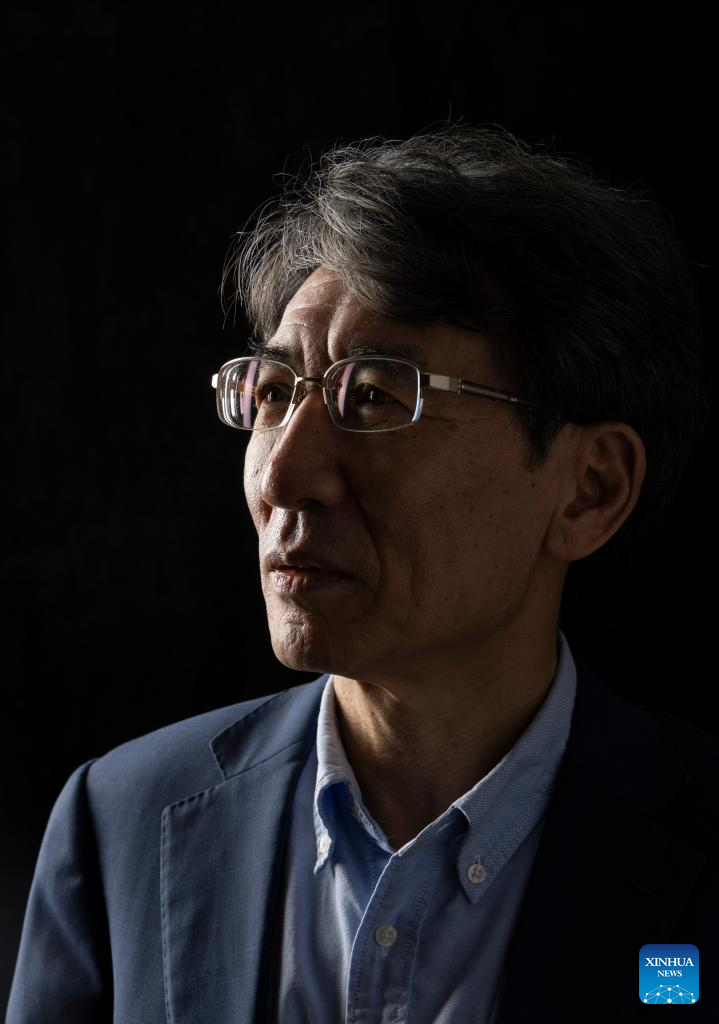
This photo taken on June 17, 2024 shows a portrait of Xue Qikun in Beijing, capital of China. (Xinhua/Jin Liwang)
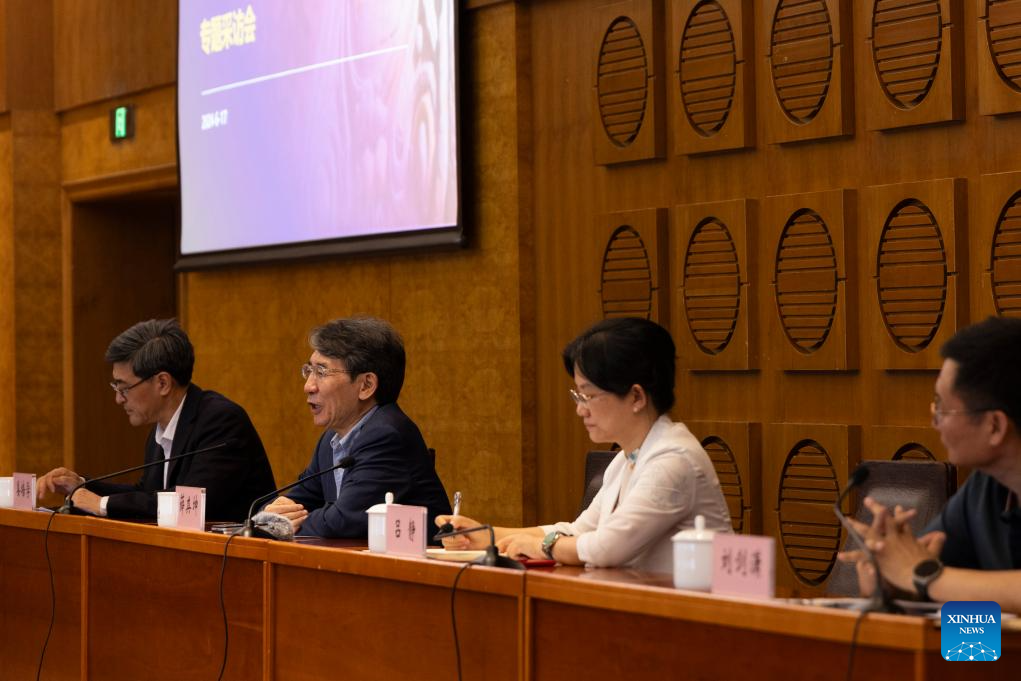
Xue Qikun (2nd L) speaks during a collective interview at Tsinghua University in Beijing, capital of China, June 17, 2024. (Xinhua/Jin Liwang)
点击右上角![]() 微信好友
微信好友
 朋友圈
朋友圈

请使用浏览器分享功能进行分享
